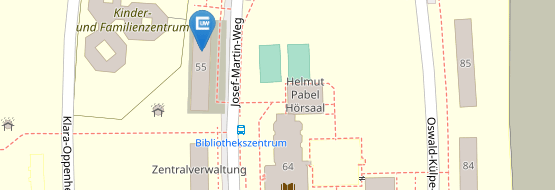The Europass
Europass is a free EU service for job applications and job searches. It helps with job applications, career planning, documenting skills and comparing qualifications across most of Europe. The aim is to facilitate transnational learning and working in Europe. The free and ad-free Europass portal allows users to present all their skills, qualifications and experience in their personal profile. They can also use tools such as a CV editor to write CVs and cover letters and collect them in their own library, along with certificates and statements on the comparability of training programmes. The Europass portfolio is a set of documents that help applicants present their skills and qualifications in a standardised, professional layout across Europe.
You can also use the Job and Training Finder to find suitable job vacancies or training opportunities. As a registered member of Europass, you can publish your CV there. This allows registered workers to directly search the shared CVs and skills profiles to find and contact potential candidates for their jobs. Registered workers can also filter job adverts by region and requirements to find jobs that match their profile.
Via the EURES information portal, employees can use a filter and keyword function to find all the necessary information on living and working conditions in all countries participating in EURES.
The living and working conditions database contains information and tips on topics such as finding accommodation, schools, taxes, the cost of living, healthcare, social legislation and the comparability of qualifications. You will also find information on the labour market and current developments in the individual countries and their regions.
Tools
The e-portfolio is the place where you can manage your personal skills and interests. Once you have registered - free of charge - to use the full range of features, you can create your personal profile, including your educational qualifications and work experience, as well as your other skills, hobbies, language skills and other competences. The e-portfolio also includes a digital document centre. Users can upload their diplomas, certificates, work samples, etc. and store them permanently.
With a fully completed profile, you can also edit CVs and application letters. The CV editor gives you a choice of different designs, which you can use to present your skills and qualifications in a structured and clear way.
The Europass Mobility certifies the competences and skills acquired during a stay abroad. The organised presentation makes it possible to document and compare the knowledge and skills acquired in a meaningful way.
Currently, the Europass Mobility is still applied for by the sending institutions. In the future, however, this will be possible directly via the Europass portal.
Certificate explanations provide detailed explanations of a vocational qualification. In Germany, these statements are issued by the relevant competent authority. However, you can use the links to certificate supplements from other countries on the Europass website to compare and evaluate your qualifications.
A Diploma Supplement is the counterpart to certificate explinations. It has been issued together with academic degree certificates since 2005 and explains their contents.
In the future, digital capability certificates should standardise the different formats of certificates and references across Europe and make them easier to verify. The digital transfer is intended to make the recognition of qualifications and learning outcomes both more efficient and more secure and therefore simpler.

